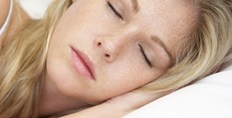Healthy Living
Eat grapes, lose weight─── 12:30 Fri, 29 Jan 2016

Why grapes are your diet's new best friend.
Want to shed pounds and boost your sex life? Eat grapes. Yes the latest fruit-based health research hails the humble grape as a diet and bedroom hero, all thanks to the high content of flavonoids found in them. Flavonoids are natural compounds that give many fruit and vegetables their vibrant colours and their flavours and have previously been lauded for their ability to reduce blood pressure and cholesterol, reducing the risk of conditions such as heart disease and cancer. Dark chocolate and wine, which are full of flavonoids, made headlines for their links to good heart health, and now research states that a handful of grapes could also have lots of body boosting effects.
Researchers from Harvard School of Public Health and the University of East Anglia tracked 124,000 people across the US over 24 years. During that time scientists were able to record weight gain, with men found to put on an average 2.2lb every four years, and women 4.8lb.
When looking at diets of the participants, those who ate the highest number of flavonoid-rich foods tended to maintain a healthy weight, or even showed modest weight loss.
Grapes, blueberries, strawberries, cherries, blackberries, radishes and blackcurrants from the flavonoids group anthocyanins had the most benefits.
Results for people eating anthocyanins remained the same even when the team tinkered with other lifestyle factors, like exercise and diet.
"That suggests there is something specific about flavonoids," stated author Aedin Cassidy, professor of nutrition at the University of East Anglia's Norwich Medical School.
"Rather than being the latest diet fad, this is about maintaining your weight. When people enter middle age, they tend to gain weight — it's just a fact of life."
In a separate study by the two educational institutions earlier this month, it was also found that middle-aged men who eat a diet high in flavonoid-rich foods were less likely to develop erectile dysfunction.
© Cover Media














